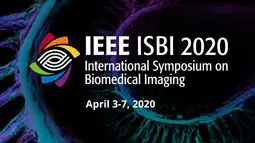Analysis of the Influence of Diffeomorphic Normalization in the Prediction of Stable vs Progressive MCI Conversion with Convolutional Neural Networks
Ubaldo Ramon-Julvez, Hernandez Monica, Elvira Mayordomo
-
Members: FreeSPS
IEEE Members: $11.00
Non-members: $15.00Length: 11:35
03 Apr 2020
We study the effect of the selection of diffeomorphic normalization in the performance of Spasov's deep-learning system for the problem of progressive MCI vs stable MCI discrimination. We considered different degrees of normalization (no, affine and non-rigid normalization) and two diffeomorphic registration methods (ANTS and BL PDE-LDDMM) with different image similarity metrics (SSD, NCC, and lNCC) yielding qualitatively different deformation models and quantitatively different degrees of registration accuracy. BL PDE-LDDMM NCC achieved the best performing accuracy with median values of 89%. Surprisingly, the accuracy of no and affine normalization was also among the highest, indicating that the deep-learning system is powerful enough to learn accurate models for pMCI vs sMCI discrimination without the need for normalization. However, the best sensitivity values were obtained by BL PDE-LDDMM SSD and NCC with median values of 97% and 94% while the sensitivity of the remaining methods stayed under 88%.



